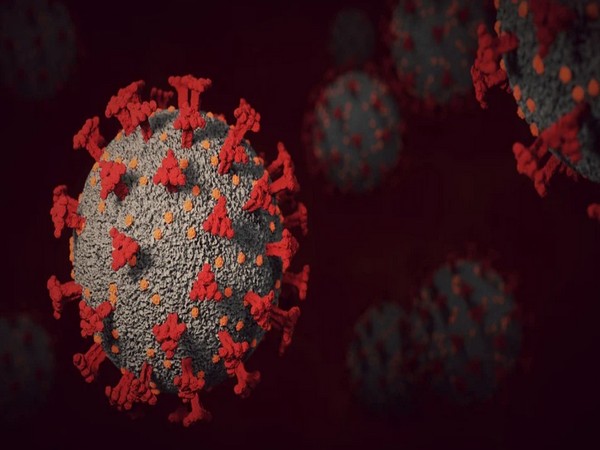Health News Roundup: COVID variants BQ.1/BQ.1.1 make up nearly half of U.S. cases - CDC; Canadian hospitals, strapped for staff, strain with sick children and more

Following is a summary of current health news briefs.
COVID variants BQ.1/BQ.1.1 make up nearly half of U.S. cases - CDC
The U.S. Centers for Disease Control and Prevention estimated on Friday that Omicron subvariants BQ.1 and BQ.1.1 account for nearly half of the COVID-19 cases in the country for the week ending Nov. 19, compared with 39.5% in the previous week. The proportion of the two variants, which are descendants of Omicron's BA.5 sub-variant, have risen to 49.7% of circulating coronavirus variants, around two months after they were initially detected.
Canadian hospitals, strapped for staff, strain with sick children
Canadian hospitals are straining to care for an influx of sick children, many with respiratory illnesses, in the midst of staffing constraints and as a shortage of children's over-the-counter medication sends more kids to the hospital. Hospitals across the country are reassigning staff to pediatric care and putting children in other parts of hospitals, from post-partum to adult wards, to grapple with the increased volume of young patients.
Anti-abortion groups ask U.S. court to pull approval for abortion drugs
Anti-abortion groups on Friday filed a lawsuit asking a court to overturn U.S. regulators' approval of the drug mifepristone for medication abortion, which could hobble access to medication abortion nationwide. The lawsuit, filed in Amarillo, Texas, federal court by the Alliance for Hippocratic Medicine, American Association of Pro-Life Obstetricians and Gynecologists, and others, said the U.S. Food and Drug Administration lacked authority to approve the drug for abortion when it did so in 2000 and that it failed to study its risks for minors adequately.
Pfizer/BioNTech's updated COVID shot shows strong response against BQ.1.1
Pfizer Inc and its German partner BioNTech SE said on Friday their Omicron-tailored shot produced higher virus-neutralizing antibodies in older adults against the emerging subvariant BQ.1.1 than its original vaccine. Antibody levels against the subvariant rose nearly nine-fold in older adults, aged 55 and above, who received the Omicron shot compared to a roughly two-fold increase in participants with the original shot, according to data posted on the online archive bioRxiv.
Analysis-U.S. midterms dampen Big Pharma hopes for drug price policy change
The divided U.S. Congress after the November midterm elections undermines pharmaceutical companies who want to weaken a new law that allows the government to negotiate drug prices, Republican strategists, policy experts and pharmaceutical executives say. Democratic President Joe Biden's signature Inflation Reduction Act, which Democrats passed in August against the pharmaceutical industry and Republicans' opposition, allows the government's Medicare health program for people aged 65 and older and people with disabilities to directly negotiate prices for some drugs starting in 2026.
China reports 24,473 new COVID cases; some Beijing businesses shut
China reported a slight decline in new COVID-19 cases on Saturday as numerous cities battled outbreaks, and as restaurants and other businesses in Beijing shut after authorities urged people to stay home over the weekend. Authorities have recently sought to ease the impact of their tough zero-COVID policy, which is battering the world's second-biggest economy and sowing frustration and anger as case numbers have risen to their highest since April.
Beijing district urges staying home for the weekend as COVID cases rise
Beijing's biggest district urged people to stay home during the weekend and COVID-19 outbreaks grew in numerous Chinese cities on Friday, even as China further fine-tuned its COVID rules by removing capacity limits at entertainment venues.
Under a series of measures unveiled last week, authorities have sought to be more targeted in applying COVID-19 curbs that are taking a heavy toll on the economy and fuelling public frustration and anger, sparking investor hopes this week for more significant easing.
Factbox-Vaccines and drugs in the pipeline for RSV
There are no approved vaccines and only one drug in the United States for the respiratory syncytial virus (RSV), a common respiratory virus that usually causes mild, cold-like symptoms but can also lead to serious illness and hospitalization. Sanofi SA and AstraZeneca Plc's drug nirsevimab recently became the second to get Europe's approval to prevent RSV infections in infants, after Swedish drugmaker Orphan Biovitrum's Synagis. Nirsevimab does not have U.S. approval yet.
How the World Health Organization might fight future pandemics
Negotiations on new rules for dealing with pandemics are underway at the World Health Organization (WHO), with a target date of May 2024 for a legally binding agreement to be adopted by the U.N. health agency's 194 member countries. A new pact is a priority for WHO chief Tedros Adhanom Ghebreyesus as his second five-year term at the head of the global health agency gets underway. It seeks to shore up the world's defenses against new pathogens following the COVID-19 pandemic that has killed more than 6.5 million people, according to the WHO.
Berlin zoo unexpectedly closes after bird flu case
Berlin's zoo closed its doors without warning on Friday out of precaution after a case of avian flu was discovered in a wading bird that died earlier this week, it said in a statement.
The zoo, which welcomed over 3.7 million guests in 2019, its latest figure, did not mention when it would reopen to visitors.










